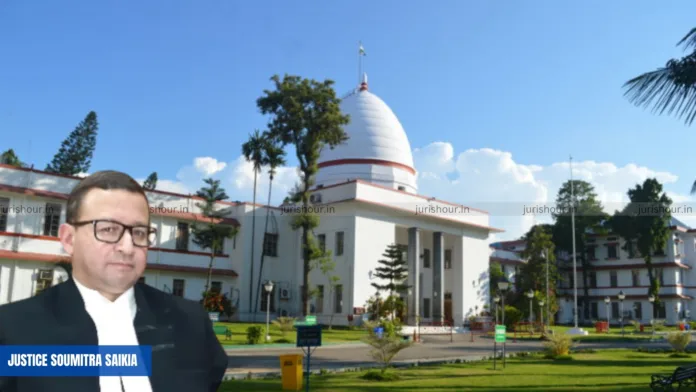The Gauhati High Court while granting bail to the accused of GST evasion by falsely claiming Input Tax Credit (ITC) as the commissioner failed to determine GST Liability of alleged GST evaders which amounted to lack of ‘reasons to believe’.
The bench of Justice Soumitra Saikia has observed that while the power to arrest is conferred under Section 69 of the CGST Act the same shall only be imposed only upon reasons to believe to be arrived at by the Commissioner that the person has committed any of the offences specified under Section 132 and punishable under Clause I, II of Sub-section 1 or Sub- section 2.
There is an allegation against the petitioner for evasion of GST by falsely claiming ITC (Input Tax Credit) to the tune of Rs. 9,11,87,126 as alleged by the department.
The quantum of demand has not yet been assessed by the department. The amount specified by the respondent authorities is only an assumption based on their investigation so far. The petitioner has cooperated with the authorities concerned and therefore, there was no need or necessity to keep him under detention.
The court noted that the authorization required under the statue has been given by the Commissioner on the ground that he has reasons to believe on the materials placed before the authority. However, what is not seen from the materials placed before the court at this stage is the determination of the liability as is required for recovery of taxes from any assessee.
The court held that no material has been shown that such determination of the liability had been arrived at by the department on whom the Commissioner had concluded that he had “reasons to believe” that the person has committed any offence specified under the various Clauses under Section 132.
The court directed that the accused to be released on interim bail subject to furnishing personal bond of Rs. 1 Lakh as well as execute a bail bond of Rs. 1 Lakh with two local sureties of the like amount to the satisfaction of the Chief Judicial Magistrate, Kamrup (M) subject to various conditions.
Firstly, the accused-petitioner shall appear before the Investigating Officer as and when required and co-operate with the investigation, till investigation is complete.
Secondly, the accused shall not change or move out of his known address without written permission of the I.O.
Thirdly, the accused-petitioner shall not directly or indirectly make any inducement, threat or promise to any person acquainted with the facts of the case so as to dissuade him from disclosing such facts to Court or to any police office or tamper with the evidence. He shall not, in any manner, try to influence or intimidate the prosecution witnesses.
Fourthly, the accused-petitioner shall not obstruct the progress of the investigation/trial.
Lastly, the accused-petitioner shall not misuse his liberty in any manner.
Read More: Cancellation of GST Registration By Tax Official: Everything You Need To Know
Case Details
Case Title: DHARMENDRA AGARWAL Versus Union Of India
Case No.: Case No. : WP(C)/6963/2024
Date: 09.01.2025
Counsel For Petitioner: B K Mahajan, Mr. P Mahanta,Mr. P K Das,Mr. N Mahajan,Mr. D Bora, Mr. A Chaudhury
Counsel For Respondent: SC, GST





